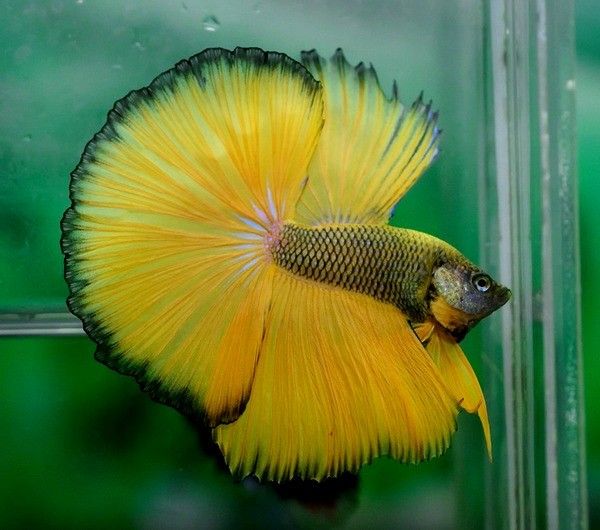Unravel the enigma of Columnaris in Betta fish, diving into its symptoms, treatment, and prevention. Be armed with the knowledge to safeguard your Betta's health and longevity.

Table of Contents
| Outline |
|---|
| 1. Understanding Columnaris Disease in Betta Fish |
| 2. Recognizing Symptoms of Columnaris in Betta Fish |
| – Identifying Physical Symptoms |
| – Observing Behavioral Changes |
| 3. The Science Behind Columnaris: What Causes It? |
| 4. Columnaris in Betta Fish: Effective Treatment Approaches |
| – Medical Treatments |
| – Holistic Approaches |
| 5. Preventing Columnaris in Betta Fish |
| – Aquarium Maintenance |
| – Optimal Nutrition for Betta Fish |
| – The Role of Stress in Disease Prevention |
| 6. Common Misconceptions About Columnaris in Betta Fish |
| 7. Consulting a Vet: When and Why? |
| 8. Understanding the Prognosis for Columnaris in Betta Fish |
| 9. The Future of Betta Fish Care: New Advances in Columnaris Prevention and Treatment |
| 10. FAQs About Columnaris in Betta Fish: Symptoms, Treatment, and Prevention |
| 11. Conclusion: Safeguarding the Health of Your Betta Fish |
Understanding Columnaris Disease in Betta Fish
Columnaris disease, also known as cottonmouth or cotton-wool disease, is a common bacterial infection that can affect your Betta fish. Caused by the bacterium Flavobacterium columnare, it is often mistaken for a fungal infection due to the cotton-like lesions it forms on the fish's body.
Recognizing this disease early and providing the correct treatment is crucial to protect your fish. This guide will help you detect signs of Columnaris in your Betta fish and arm you with the necessary knowledge to treat and prevent the disease.
Recognizing Symptoms of Columnaris in Betta Fish
Identifying Physical Symptoms
One of the first signs of Columnaris is the appearance of whitish, cotton-like tufts on the mouth, gills, or body of the Betta fish. Other physical symptoms may include ragged fins, skin ulcers, and discoloration. These signs might vary depending on the stage and severity of the disease.
Observing Behavioral Changes
Behavioral changes in your Betta fish might indicate the onset of Columnaris. Look for signs such as loss of appetite, lethargy, and difficulty breathing. Remember, behavioral changes can also signal other health problems, so a careful observation is essential.
The Science Behind Columnaris: What Causes It?
Columnaris in Betta fish is caused by the bacterium Flavobacterium columnare. This bacterium thrives in warm water conditions, making your aquarium a suitable breeding ground. Factors such as poor water quality, overcrowding, and stress can make your Betta fish susceptible to this disease.
Columnaris in Betta Fish: Effective Treatment Approaches
Medical Treatments
Treatment for Columnaris involves a two-pronged approach – treating the fish and treating the environment. Medications such as antibiotics and antibacterial agents can be effective in combating the disease. It's recommended to isolate the infected fish and treat it separately to prevent the disease from spreading.

Holistic Approaches
In addition to medical treatments, holistic approaches can support the recovery process. Stress reduction, optimal nutrition, and maintaining a clean environment are essential steps in managing Columnaris.
Preventing Columnaris in Betta Fish
Aquarium Maintenance
Regular cleaning and water changes can maintain the water quality in your aquarium, reducing the likelihood of a Columnaris outbreak.
Optimal Nutrition for Betta Fish
Providing a balanced diet helps boost your Betta fish's immune system, equipping it to combat diseases like Columnaris effectively.
The Role of Stress in Disease Prevention
Stress weakens the immune system of Betta fish, making them susceptible to infections. Maintaining a stress-free environment can be a significant preventive measure against Columnaris.
Common Misconceptions About Columnaris in Betta Fish
There are many misconceptions about Columnaris, the most common being that it's a fungal infection. This mistake can lead to inappropriate treatment, worsening the condition of the infected Betta fish.
Consulting a Vet: When and Why?
If the disease continues to progress despite your best efforts, consult a vet who specializes in aquatic medicine. They can provide an accurate diagnosis and prescribe appropriate medication.
Understanding the Prognosis for Columnaris in Betta Fish
With prompt and correct treatment, most Betta fish can recover from Columnaris. However, the prognosis depends on the severity and stage of the disease at the time of diagnosis.
The Future of Betta Fish Care: New Advances in Columnaris Prevention and Treatment
Scientific advances in understanding the Columnaris bacterium are paving the way for new treatment and prevention strategies. Keep yourself updated on these advancements to provide the best care for your Betta fish.
FAQs About Columnaris in Betta Fish: Symptoms, Treatment, and Prevention
What does Columnaris look like in Betta fish?
Columnaris typically presents as whitish, cotton-like tufts on the mouth, gills, or body of the Betta fish.
How do I treat my Betta fish if it has Columnaris?
Treatment involves a combination of medication and holistic approaches like stress reduction, optimal nutrition, and maintaining a clean environment.
How can I prevent my Betta fish from getting Columnaris?
Prevention strategies include regular aquarium maintenance, providing a balanced diet, and creating a stress-free environment for your fish.
Is Columnaris contagious to other fish?
Yes, Columnaris is highly contagious and can quickly spread to other fish in the same tank.
What's the difference between Columnaris and a fungal infection in Betta fish?
While both can cause similar symptoms, Columnaris is a bacterial infection and requires different treatment approaches than a fungal infection.
Can a Betta fish fully recover from Columnaris?
Yes, with prompt and correct treatment, most Betta fish can recover fully from Columnaris.
Conclusion: Safeguarding the Health of Your Betta Fish
Understanding Columnaris in Betta fish, recognizing its symptoms, and knowing how to treat and prevent the disease is critical to maintaining your fish's health. Remember, early detection and correct treatment can ensure your Betta fish recovers from this common ailment and continues to thrive.
Malachite Green 20g for Aquarium Fish Health






